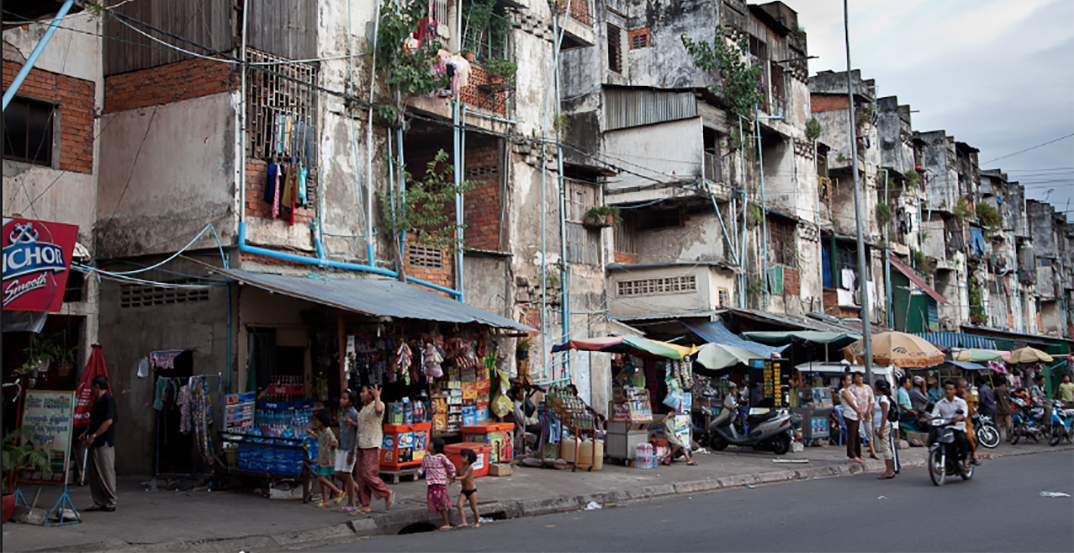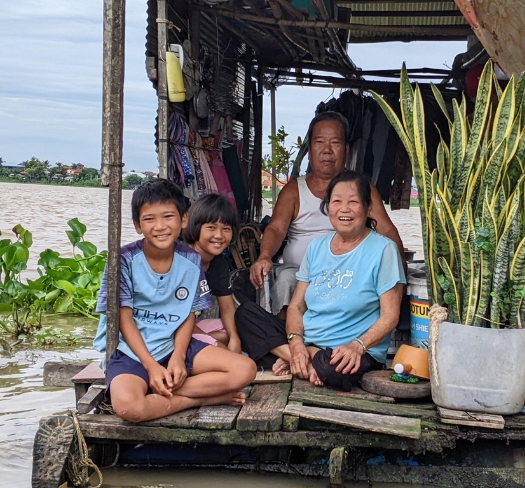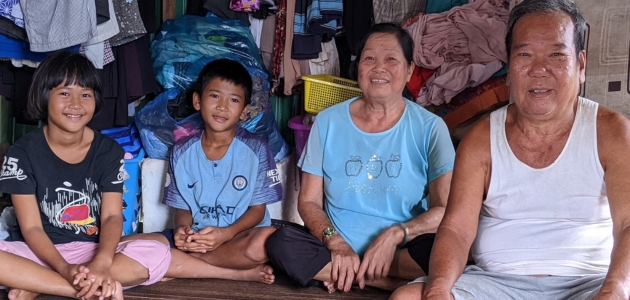The Mixed Migration Flows Project
This project helps asylum seekers, refugees, stateless people and vulnerable migrants to live in dignity and find durable solutions.
Cambodia hosts a small number of asylum seekers and refugees. Among these are Rohingya, Montagnard and other people who have fled from religious and political persecution in Myanmar, Syria, Vietnam, Pakistan and other places.
With more than a third of its 16 million population below the poverty line, Cambodians are increasingly leaving to find work in neighbouring countries. There are more than 1.2 million Cambodian migrant workers in Thailand alone. One result of this is that children are left behind in the care of elderly grandparents or others.
Within Cambodia is also a sizeable number of ethnic Vietnamese who have lived in Cambodia for generations without documents. Considered stateless, they cannot work, enrol in school or own land.
With the support of Jesuit Mission, Jesuit Refugee Service (JRS) Cambodia accompanies, serves and advocates for the right of displaced people and the families they left behind to live in dignity and safety. Its Mixed Migration Flows project does as Pope Francis urges - welcome, protect, promote and integrate migrants and refugees.
JRS Cambodia operates a welcome centre for refugees and asylum seekers, offering hospitality and access to basic services such as shelter, food, education, and healthcare. It also assists with finding durable solutions for resettlement, repatriation, integration and family reunification. It supports vulnerable left behind children by assisting with access to education and basic services. It helps stateless people to obtain proper documentation, and has a special fund for stateless families to help with access to healthcare, housing and emergency services.
“I have a very strong belief that the consequence of mercy, charity, and love is justice. The very vulnerable need assistance, and as the only refugee agency in Cambodia, JRS is dedicated to accompanying, serving and advocating for the most vulnerable displaced people – asylum seekers, refugees, migrant workers and their left behind children, stateless people.”
In addition, it raises awareness of forced displacement and mixed migration flows through workshops, advocacy and research. These efforts potentially benefit approximately 1 million migrant workers and thousands of stateless people.

The Mixed Migration Flows Project aids refugees through the maze of challenges towards a more secure future.
The Tran’s Story
The Tran family, faced unimaginable hardships surviving as farmers with insufficient resources in their home country of Vietnam. Forced to flee their home near the Mekong River Delta due to dire living conditions, the family sought refuge in Cambodia in 1991 with their two children, who now work in Phnom Penh.
Although life has improved in Cambodia, it remains challenging for the entire refugee family. The grandchildren moved in with their grandparents two years ago and now live on a boat, navigating the daily struggles of life on water. Despite these difficulties, the family finds solace in their faith, attending a local Catholic Church, and in the support from our project partner Jesuit Refugee Service (JRS) Cambodia.
In 2010, their application for refugee status was approved, marking the beginning of much-needed assistance. JRS has since provided them with essential supplies such as rice, oil, and other basic needs.
"When our house boat needed a new container to stay afloat, JRS stepped in to build a new house boat for us. We are so grateful for their help."
Education remains a shining light for the grandchildren, who lost their mother when they were young.
Although they stopped attending the local school due to not receiving a quality education, they now attend an extra-tuition Khmer class, hoping to achieve a level of education that will open doors of opportunity to bring their family out of poverty.

"We breed fish, selling our catch and homemade fish sauce at the local market to earn a modest income. Support like this really makes a difference in our lives, especially for my grandchildren."

